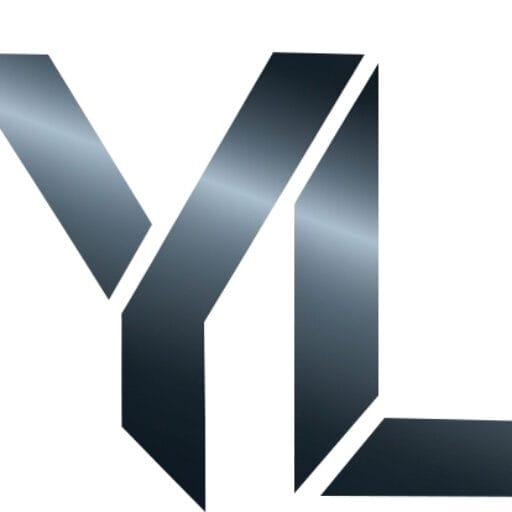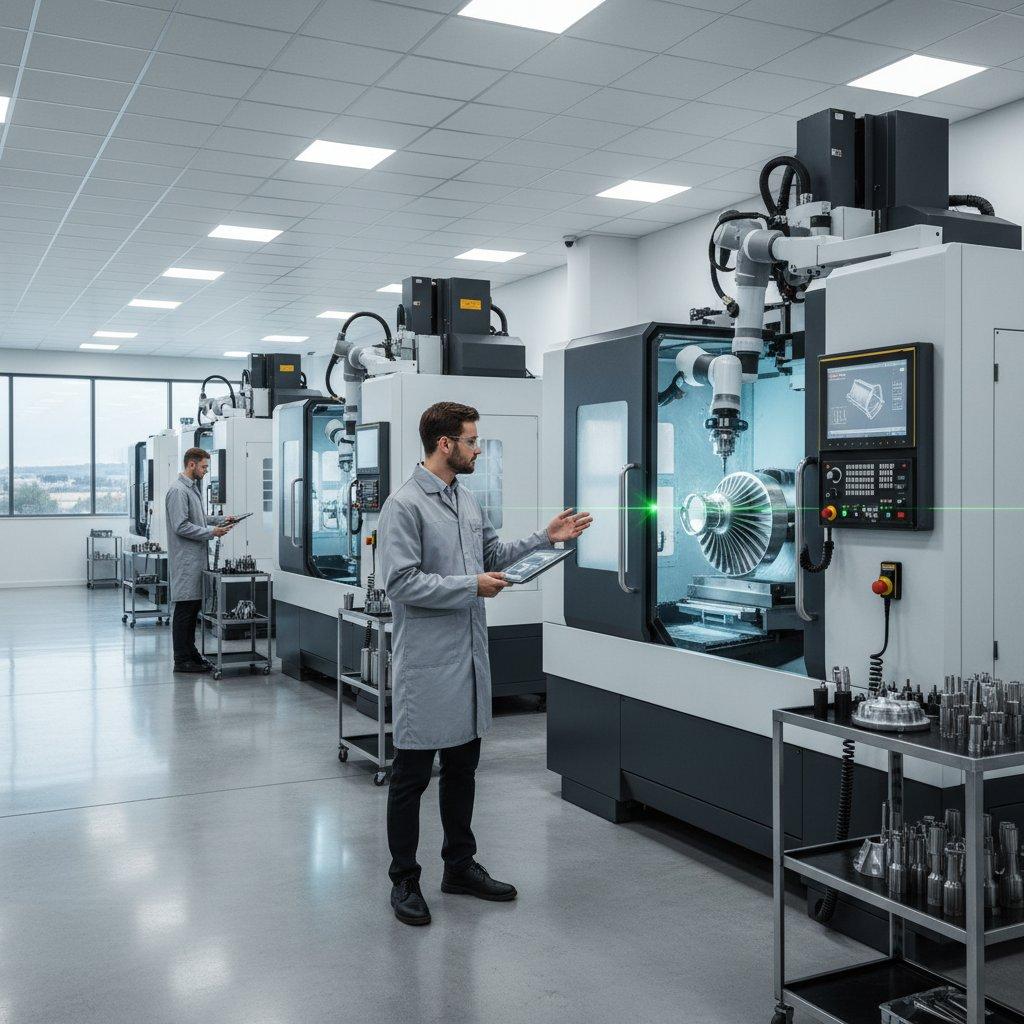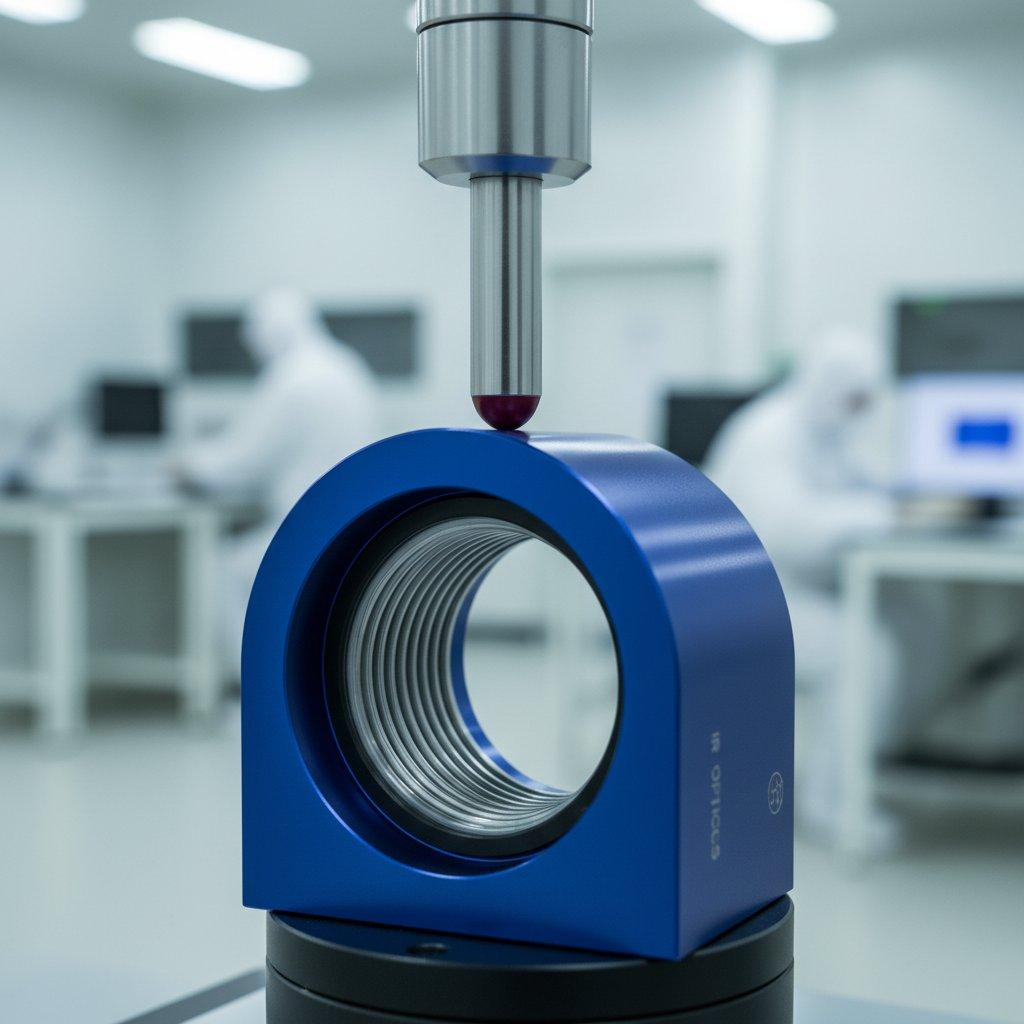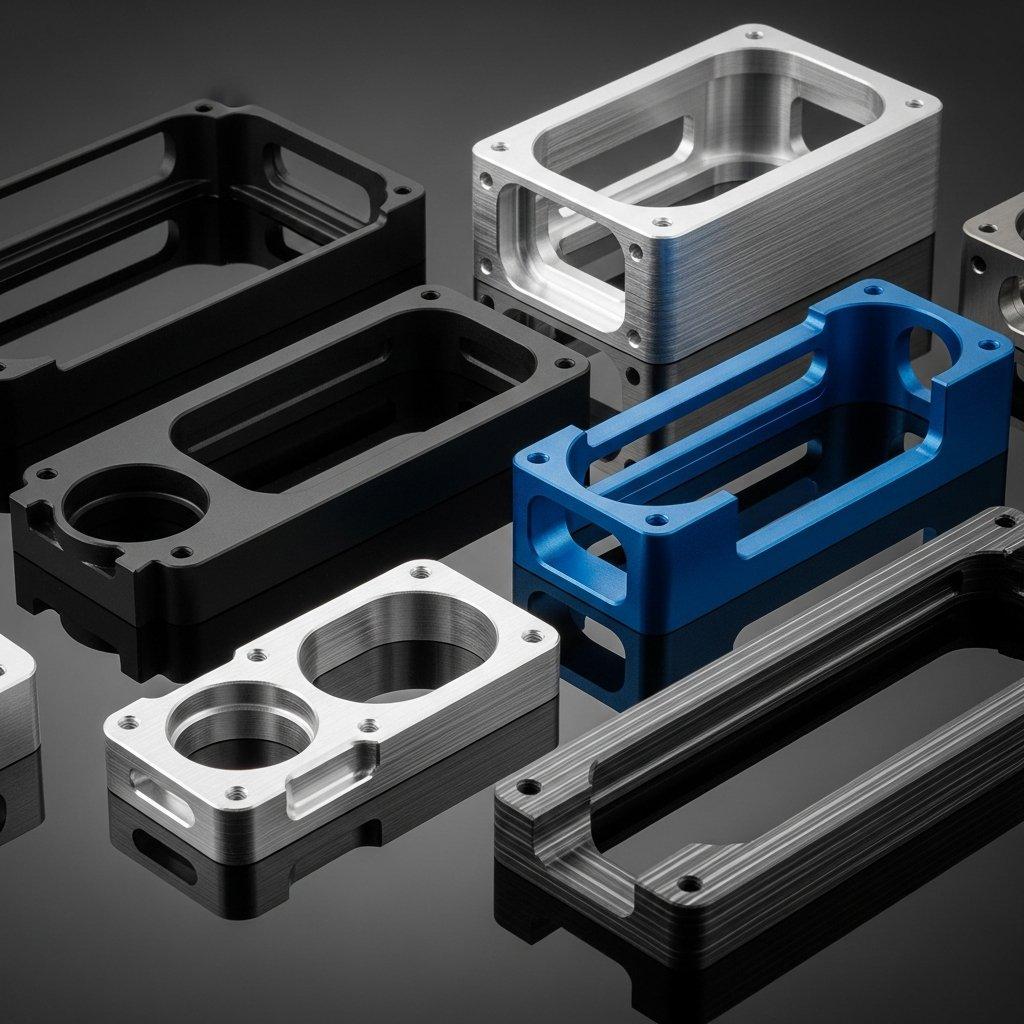What is aluminum CNC machining surface treatment?
Aluminum CNC machining surface treatment enhances part properties like corrosion resistance, hardness, aesthetics, and conductivity. It’s a crucial post-machining step ensuring aluminum components meet specific application demands.
- Solve durability issues with targeted surface finishes.
- Understand how treatments optimize part performance.
- Navigate complex options to find your ideal solution.
- Boost product longevity and aesthetic appeal effectively.
- Gain insights from a leading manufacturing expert.
- Avoid common pitfalls in surface treatment selection.
- Achieve superior quality with our proven factory processes.
Unlocking Excellence: Your Definitive Guide to Aluminum CNC Machining Surface Treatment
The world of high-precision manufacturing often feels like a constant battle against material limitations, environmental factors, and ever-increasing performance demands. Perhaps you’ve invested heavily in aluminum CNC machining, creating intricate parts, only to find them vulnerable to corrosion, wear, or simply lacking the desired finish. This can lead to costly product failures, dissatisfied customers, and a significant dent in your project’s profitability.
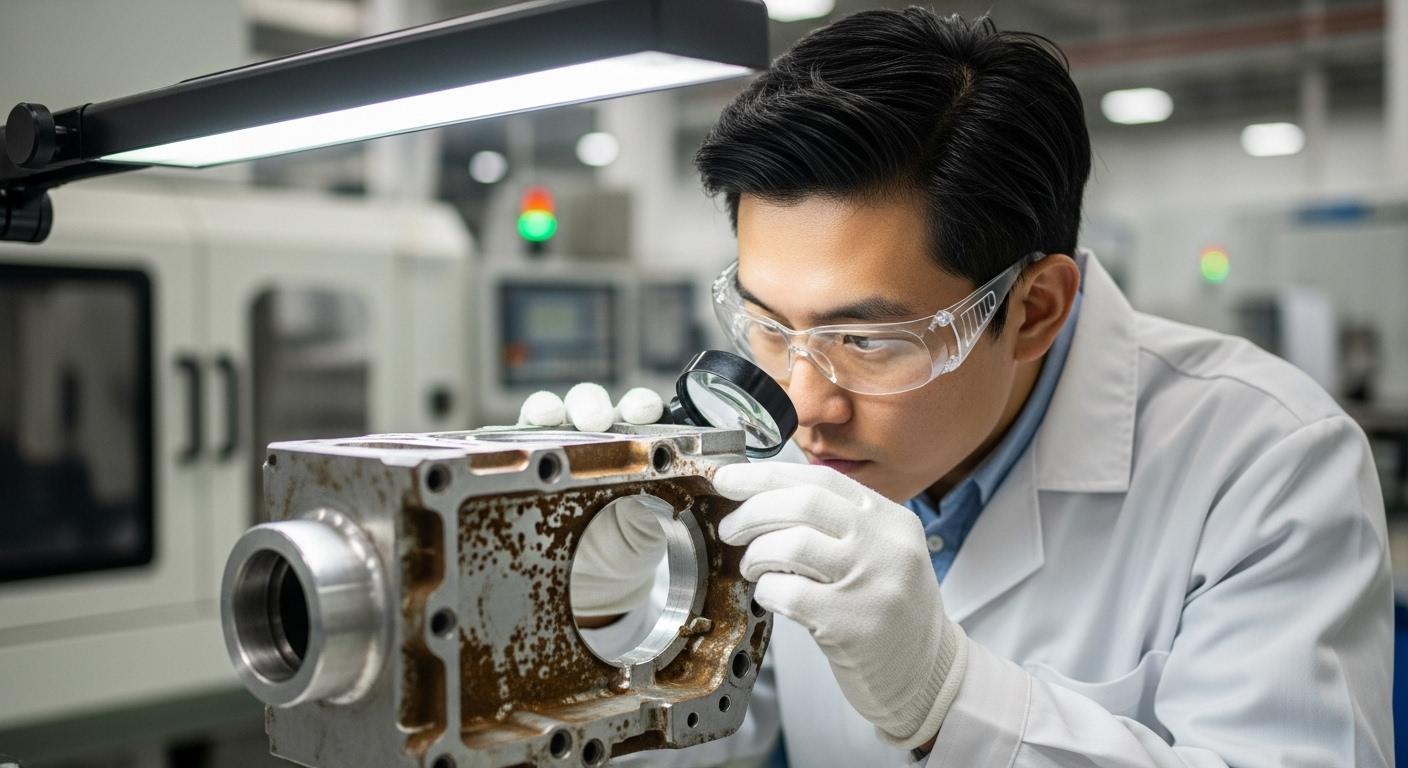
Many engineers and product designers grapple with the sheer complexity of choosing the *right* post-processing for their aluminum components. The myriad of options – anodizing, plating, coating, and more – each with its own benefits and drawbacks, can be overwhelming. Without expert guidance, selecting an inappropriate surface treatment can compromise the integrity, functionality, and aesthetic appeal of your meticulously machined parts.
At our state-of-the-art manufacturing facility, we understand these challenges intimately. As a dedicated source factory with decades of specialized experience in aluminum CNC machining and comprehensive surface treatments, we offer not just services, but complete solutions. This guide will demystify the world of aluminum surface treatments, empowering you to make informed decisions and transform your machined parts from functional to truly exceptional, ensuring they not only meet but exceed your project specifications.
Understanding Surface Treatments
The journey of an aluminum part doesn’t end with CNC machining. The raw aluminum, while versatile, often requires additional layers of protection or enhancement to unlock its full potential. This is where aluminum CNC machining surface treatment comes into play.
- It’s about more than just aesthetics; it’s about engineering.
- Surface treatments fundamentally alter the part’s outermost layer.
- This layer gains new physical and chemical properties.
Why Surface Treatment is Critical
Untreated aluminum, while light and strong, has inherent limitations. It can corrode, wear down, and may not possess the desired hardness or color. Our factory emphasizes surface treatment as a core advantage in enhancing product longevity and performance.
- Corrosion Resistance: Protects against oxidation and environmental degradation.
- Wear Resistance: Increases surface hardness to withstand friction.
- Aesthetics: Provides color, texture, and a high-quality finish.
- Electrical Properties: Can enhance or reduce conductivity as needed.
- Adhesion: Improves paint or coating bonding.
- Chemical Resistance: Shields against various chemicals.
Our Factory’s Full-Process Service
We offer a full-process service, integrating surface treatment seamlessly into the CNC machining workflow. This eliminates logistical complexities and ensures consistent quality from start to finish.
- Our in-house capabilities or trusted partnerships cover all major treatments.
- This streamlines your supply chain significantly.
- It also reduces lead times and overall project costs.
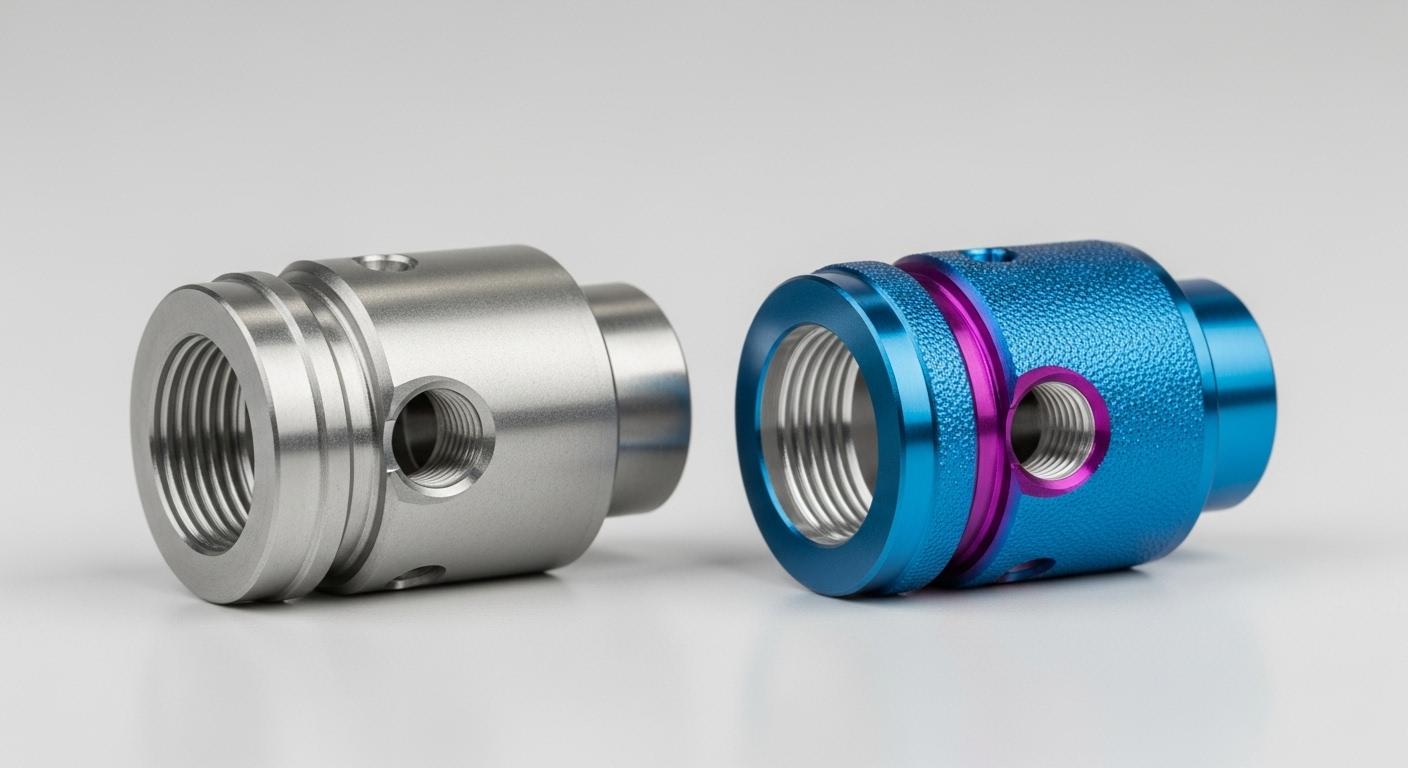
Popular Aluminum Surface Treatments
Selecting the ideal treatment requires understanding the diverse options available. As a source manufacturer, our expertise spans a broad spectrum of techniques, ensuring we can match the perfect solution to your specific application. Our technical highlights include optimizing processes for each treatment type.
Anodizing
Anodizing is an electrochemical process that converts the metal surface into a durable, corrosion-resistant, anodic oxide finish. It’s one of the most common treatments for aluminum.
Type II (Sulfuric Acid Anodizing)
This is a popular general-purpose anodizing method. It creates a moderately thick, protective oxide layer.
- It offers good corrosion and wear resistance.
- Parts can be dyed various colors for aesthetic appeal.
- Typical film thickness ranges from 5 to 25 microns.
- It’s widely used for consumer goods, architectural components, and sporting equipment.
Type III (Hardcoat Anodizing)
Hardcoat anodizing produces a significantly thicker and harder oxide layer. It offers superior wear and abrasion resistance.
- Film thickness often exceeds 50 microns.
- It provides excellent electrical insulation.
- Ideal for high-wear applications, such as gears, pistons, and military components.
- Our processing precision ensures consistent thickness and hardness across batches.
Powder Coating
Powder coating applies a protective and decorative finish. It uses a dry powder that is electrostatically applied and then cured under heat.
- It offers a wide range of colors and finishes.
- Provides excellent durability and chip resistance.
- Environmentally friendly, with minimal VOCs.
- Commonly used for automotive parts, outdoor furniture, and industrial enclosures.
- Our facility boasts advanced electrostatic application equipment for even coating.
Chromate Conversion Coating (Alodine/Iridite)
This chemical process applies a thin, gelatinous film onto the aluminum surface. It primarily offers corrosion resistance and serves as a base for paint adhesion.
- It’s very thin, typically less than 1 micron.
- Maintains electrical conductivity, unlike anodizing.
- Often specified for aerospace and electronic applications where conductivity is crucial.
- Our technicians ensure precise chemical bath control for optimal coating quality.
Electroless Nickel Plating
Electroless nickel plating deposits a uniform nickel-phosphorus alloy onto the aluminum surface without external electricity.
- It provides exceptional corrosion and wear resistance.
- Offers a high degree of hardness, often comparable to hard chrome.
- Creates a highly uniform coating, even on complex geometries.
- Excellent for parts requiring specific magnetic properties or lubricity.
- Our materials and processes ensure strict adherence to plating standards.
Passivation (for Aluminum, though more common for Stainless Steel)
While typically associated with stainless steel, some aluminum alloys can undergo a form of passivation. This process removes free iron and enhances the native oxide layer for improved corrosion resistance.
- It cleans the surface and promotes a stable oxide film.
- Primarily used when trace contaminants might compromise corrosion.
- Less common than anodizing but applicable for specific alloys and cleanliness requirements.
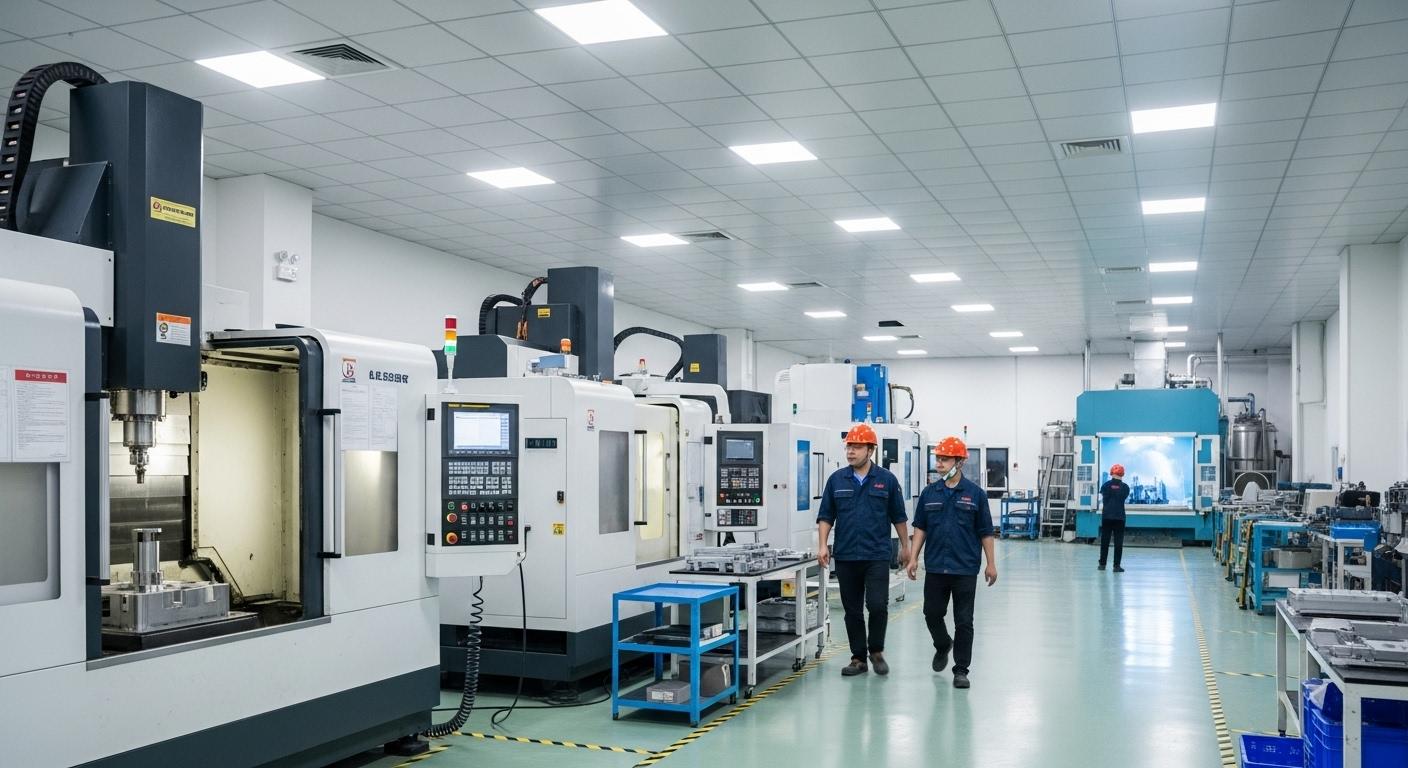
Factory Attributes & Our Commitment to Quality
As a leading source factory in aluminum CNC machining and surface treatment, our operations are built on a foundation of robust infrastructure, stringent quality control, and a relentless pursuit of excellence. Our commitment ensures that every part we deliver not only meets but often exceeds industry benchmarks.
- We emphasize transparent communication with all our clients.
- Our goal is to be a true extension of your manufacturing capabilities.
Equipment Strength and Scale
Our factory is equipped with cutting-edge machinery for both CNC machining and various surface treatments. This equipment strength enables us to handle projects of diverse complexities and scales.
- We invest continuously in the latest generation of CNC machines.
- Our anodizing lines are fully automated for precision.
- Advanced powder coating booths minimize waste and maximize finish quality.
- This translates to high-volume capacity and consistent quality for our clients.
Quality Certification and Control
Quality certification is not just a badge; it’s embedded in our operational DNA. We adhere to international quality management standards to guarantee reliability.
- Our factory holds ISO 9001 certification.
- We implement rigorous in-process and final inspection protocols.
- Using advanced metrology tools, we ensure dimensional accuracy and surface finish.
- Each batch undergoes thorough testing for adhesion, thickness, and corrosion resistance.
- Our full-chain quality control ensures traceability from raw material to finished product.
Technical Expertise and R&D
Our team comprises seasoned engineers and technicians with deep technical expertise in metallurgy, CNC programming, and surface chemistry. We also invest significantly in research and development.
- We constantly explore new materials and finishing techniques.
- Our engineers provide expert consultation on design-for-manufacturing.
- This allows us to offer innovative solutions for challenging projects.
- We have patented processes in specialized surface enhancements.
- This dedication to autonomous technology ensures we stay ahead.
Case Study: High-Performance Aerospace Components
A recent project involved aluminum CNC machining of critical aerospace components requiring precise hardcoat anodizing. The parts demanded extreme wear resistance and dielectric properties in harsh conditions.
- We utilized 7075 aluminum alloy for its strength.
- Our 5-axis CNC machines achieved tolerances of ±0.01mm.
- Hardcoat anodizing (Type III) was applied to a uniform thickness of 60 microns.
- Rigorous salt spray testing confirmed 2,000+ hours of corrosion protection.
- This project demonstrated our ability to meet stringent aviation standards.
- The client reported a 25% increase in component lifespan compared to previous suppliers.
Cost-Benefit Analysis: Electroless Nickel vs. Hard Anodize
Choosing between treatments often involves a careful cost-benefit analysis. For a batch of 1,000 sensor housings, we presented two options: Electroless Nickel Plating and Hard Anodizing.
| Feature | Electroless Nickel Plating | Hard Anodizing (Type III) |
|---|---|---|
| Corrosion Resistance | Excellent (uniform coverage) | Very Good |
| Wear Resistance | Excellent (high hardness) | Excellent |
| Uniformity | Superior (non-line-of-sight) | Good (some edge buildup) |
| Electrical Insulation | Low (conductive) | High (insulative) |
| Cost per Part (Est.) | $5.50 | $4.80 |
| Lead Time (Est.) | 7-10 days | 5-7 days |
| Key Advantage | Complex geometries, lubricity | High wear, electrical isolation |
- For this specific application, where uniform coating on internal features was critical and conductivity was acceptable, Electroless Nickel offered a superior functional advantage despite a slightly higher cost. Our consultation helped the client weigh these factors.
- This demonstrates our comprehensive pricing logic and dedication to value.

Selecting the Right Surface Treatment
The decision-making process for aluminum CNC machining surface treatment should be collaborative and informed. Our goal is to guide you to the optimal solution that balances performance, cost, and lead time.
- We act as your expert consultant, not just a service provider.
- Understanding your application is our first priority.
Key Factors to Consider
Several critical factors influence the choice of surface treatment. Our team systematically evaluates each of these with you.
- Intended Application: What will the part be used for?
- Environmental Exposure: Will it face moisture, chemicals, or extreme temperatures?
- Desired Aesthetic: Is color, texture, or gloss important?
- Performance Requirements: How much wear, hardness, or corrosion resistance is needed?
- Electrical Properties: Does it need to be conductive or insulative?
- Budget & Volume: What are the cost constraints and production quantities?
- Design Complexity: Does the part have intricate features or hidden geometries?
Tailored Solutions from Our Experts
We pride ourselves on offering tailored solutions. Our team leverages decades of industry experience and our extensive technical capabilities to recommend the best treatment.
- We consider your specific alloy, design, and performance goals.
- Our recommendations are backed by data and successful case studies.
- We guide you through the pros and cons of each option.
- This ensures your parts are optimized for their intended purpose.
The Manufacturing Edge: Why Choose Our Factory
When you partner with us for your aluminum CNC machining and surface treatment needs, you’re not just getting a vendor; you’re gaining a strategic ally. Our market positioning as a high-quality, reliable source factory sets us apart.
- We offer one-stop service capability, from design assistance to finished parts.
- Our rapid response team ensures quick communication and project initiation.
Advanced Processes for Superior Results
Our adherence to strict process control and utilization of advanced technologies ensure superior results for every project. We handle complex structure machining with ease, followed by precision finishing.
- Pre-treatment cleanliness is meticulously maintained.
- Treatment parameters are precisely monitored for consistency.
- Post-treatment inspection guarantees adhesion and finish quality.
- This holistic approach minimizes defects and maximizes output quality.
Global Reach and Client Backing
While we operate as a source factory, our impact is global. We serve clients across various industries, from aerospace to medical devices, and our client backing speaks volumes about our reliability.
- We have a proven track record with international orders.
- Our logistics partners ensure timely and secure delivery worldwide.
- Client testimonials consistently praise our quality, speed, and communication.
- This highlights our capacity for export/international orders with confidence.
Related Questions Section
What is the most durable surface treatment for aluminum CNC machined parts?
Hardcoat anodizing (Type III) is generally considered the most durable. It creates a thick, dense oxide layer with exceptional hardness and abrasion resistance. Electroless nickel plating also offers outstanding wear and corrosion protection, especially for complex geometries.
How does surface treatment impact the cost of aluminum CNC machining?
Surface treatment is an additional process, so it adds to the overall cost. Factors influencing this include the type of treatment, part size and complexity, required thickness, and batch volume. More specialized treatments or tighter specifications will incur higher costs.
Can all aluminum alloys undergo the same surface treatments after CNC machining?
No, not all aluminum alloys react the same way to surface treatments. For example, alloys with high copper or silicon content (like 2xxx or 3xx.x series) may not anodize as uniformly or achieve the same aesthetic finish as 6xxx series alloys. It’s crucial to select the treatment based on the specific alloy used.
